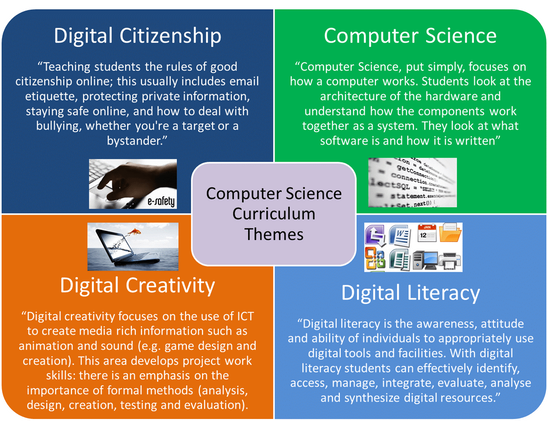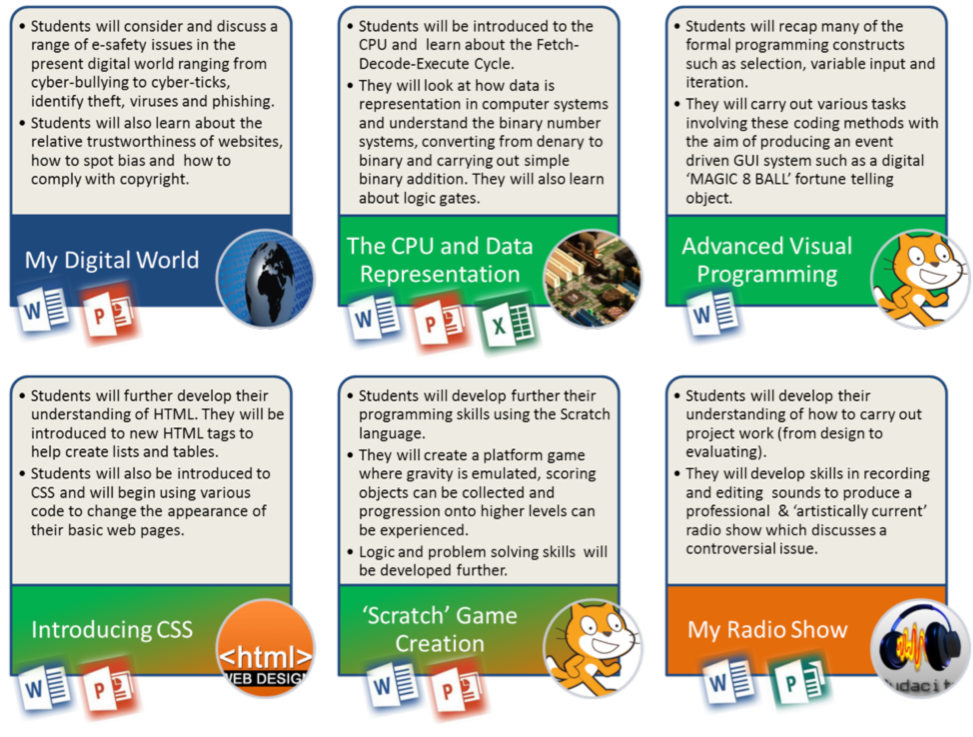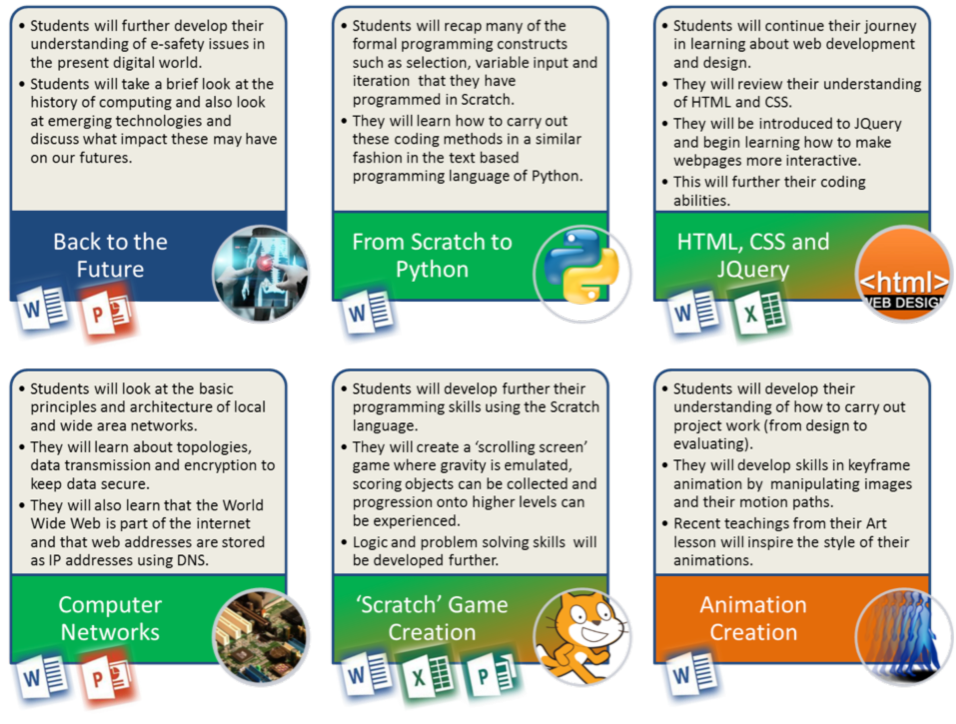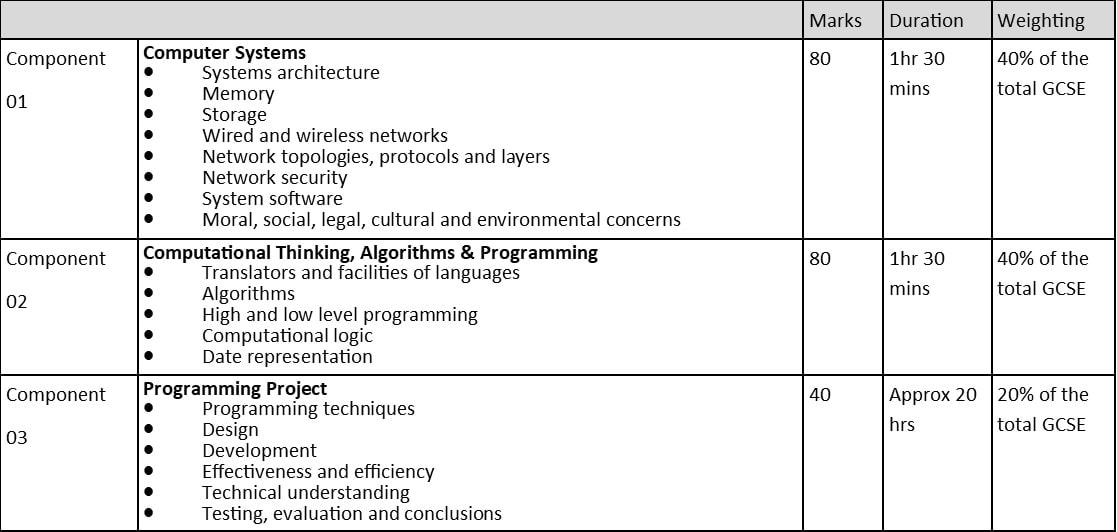Computer Studies Department IntentSidmouth College's Computer Science curriculum is designed to prepare students for the ‘Digital World’. To facilitate this, the curriculum delivers four main themes: Computer Science, Digital Literacy, Digital Creatively and Digital Citizenship. The intent of our rich Computer Science curriculum is to inspire students to succeed through a learning journey that will provide knowledge, skills and opportunities for them to be responsible and effective digital practitioners with positive life chances. We intend the CS curriculum to be connected, building upon prior learning, enabling our students to believe in their ability to succeed, becoming confident and resilient learners, with a lifelong love of learning. Through the CS curriculum, we intend our students to know what challenge and success feels like for them as an individual. Regardless of ability, age or background, the CS curriculum’s aim is to develop curiosity and critical thinking, foster aspirations and have a belief in success for all students. Key stage 3
What do students study?
Our new Computer Studies curriculum is designed to prepare all students for the ‘Digital World’. The curriculum is designed around four main themes: Computer Science, Digital Literacy, Digital Creatively and Digital Citizenship. The curriculum not only prepares students for progression within the Computer Science discipline, it also prepares them for mature and effective use of ICT whether it be for College or in the world of work.
Year 7Students study the following areas:
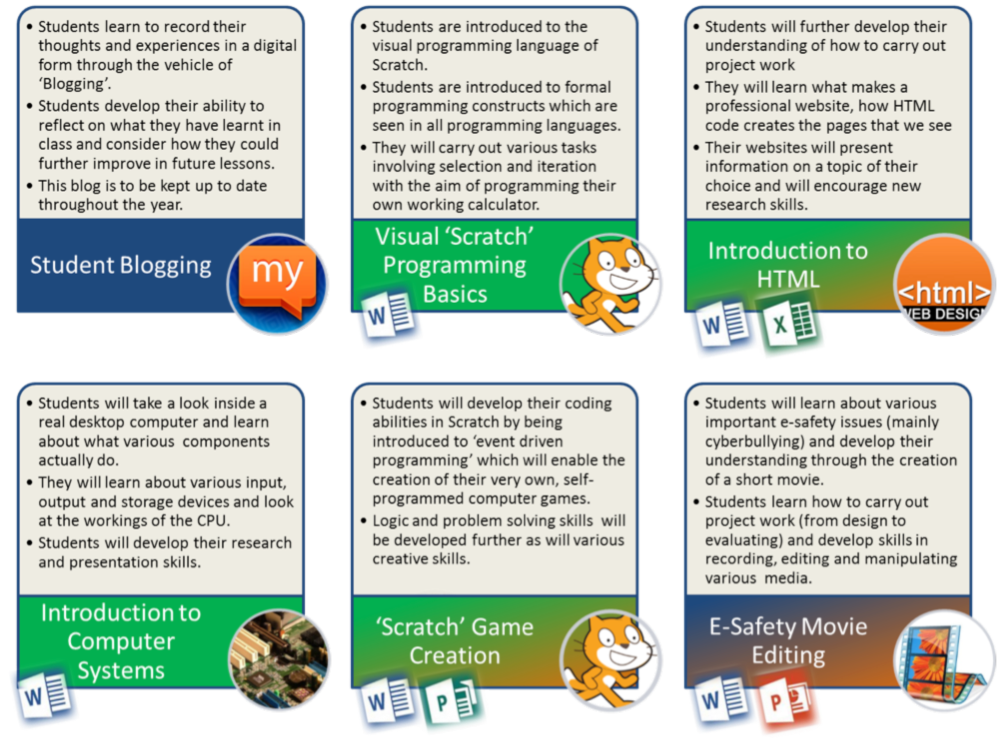
Year 8Students study the following areas:
Year 9Students study the following areas:
How are students assessed?To ensure that all students make the expected progress throughout the year, it is the department’s policy that if any student fails to achieve their termly target grade for a given examination, they will be expected to retake the examination. However, they will be given a support session to tackle any misconceptions or lack of understanding before the retake exam so that they are given the best possible opportunities to improve.
Key stage 4
WHO IS THIS COURSE FOR?
This course is for students with a keen interest in finding out how computers work. They will be investigating how computer hardware operates and study how software is written through practical programming lessons. Computing is a challenging subject to study and we will dive quickly into the technical workings of computer technology and programming. Students should be driven, enthusiastic, have a good work ethic and fairly good mathematical skills, as this will generally enable them to understand the logic required for programming. EXAM BOARD, COURSE CONTENT & ASSESSMENT DETAILS Exam Board—OCR, There are three units and each has its own assessment: Components 1 and 2 are largely theoretical units. They each will be assessed with a terminal written examination at the end of the course. Component 3 is a practical unit. Our language of choice is Python3 and students will develop their skills in programming using this language. The unit will culminate in a practical controlled assessment which will be marked by the school and moderated by the exam board. WHAT CAN THIS COURSE LEAD TO POST 16? It is a fact that information technologies continue to have a growing importance. This means there will be a bigger demand for professionals who are qualified in this area. If students want to go on to higher study and employment in the field of Computer Science, they will find that this course provides a superb stepping stone. Students who have taken a Computer Science GCSE and who then progress to study the subject at A Level or university, will be ready to work in the computing industry, developing computer programs or other innovative technological projects. In addition to this, the course will prepare students (regardless of their chosen career/educational direction) for the future digital world. The skills they acquire will be transferable to any job/course due to the fact that ICT now has such a presence in both education and the working world FOR WHAT CAREERS WILL THIS COURSE BE USEFUL? All jobs in the computer industry (e.g. Programmer, Computer Engineers etc). Business owners and entrepreneurs. Generally, this course will prepare students (regardless of their chosen career/educational direction) for the future digital world. OTHER RELEVANT INFORMATION The course is fully resourced with lesson presentations, worksheets, videos, revision notes and practice exam questions stored online (Department Website) for students to access 24/7. Key stage 5
Introduction This modern qualification gives students a general grounding in computing, including an understanding of computer systems, the principles of programming and problem-solving.
It is excellent preparation for students looking to take computing studies at degree level, or for anyone considering any kind of career in computing. What do students study? All elements will contain a component which will be a traditionally marked and structured question paper with a mix of question types: short-answer, longer-answer, and levels of response type questions. Component 1: COMPUTER SYSTEMS The content covered in this component includes:
Component 2: ALGORITHMS AND PROGRAMMING The content covered in this component includes:
There will be a scenario/task contained in the paper, which could be an algorithm or a text page-based task, which will involve problem solving. Component 3: PROGRAMMING PROJECT Students will select their own user-driven problem of an appropriate size and complexity to solve. Previous projects include an educational based computer game to help students revise for their exams and a projectile motion simulator teaching tool for a Physics teacher. Students will need to analyse the problem, design a solution, implement the solution and give a thorough evaluation. How are students assessed? The A level examination is made up of a number of externally assessed examinations plus a major project at the end of the second year of the course. This is internally assessed and externally moderated. (OCR board) Comments are closed.
|
Access Octomono Masonry Settings
Subjects
All
|
- Home
-
About Us
- About our School
- Board of Governors
- Careers & Education Guidance
- Contact
- Equality
- Ethos and Values
- Exam Results >
- Hire of School Premises
- Links & Partnerships
- Ofsted Reports
- Our People
- Performance Data
- Policies
- Principal's Welcome
- Pupil Premium
- SEF & College Priorities
- Sidmouth College Way
- Ted Wragg Trust
- Vacancies
- Visitor Information
- Wellbeing at School
- Admissions
- Learning
-
Parents
-
Students
- Sixth Form
Useful links |
Navigate |
|
© Sidmouth College 2020 | Primley Road, Sidmouth, Devon EX10 9LG | Website design by Bright Blue C
